
Restaurants
Spa
Day Visits
Shop
Functions
16°C
February 19th, 2024
A week in the life of Babylonstoren’s VIP garden workers, by our resident beekeeper and entomologist, Arné Stander.
Overview
With the exception of Monday which hit a high of 38°C, the past week was cooler with light rain on Thursday and Friday morning, and temperatures in the low 20’s.
I inspected the hives in the Soetdoring camp in preparation for next week’s bee workshop. I looked at the supers and at the hive lacking a super. My new method of inspecting hives involves using coloured pins to indicate the progress of the frames in each super. The photo below shows a yellow pin in the super, which means it is almost ready to be harvested.
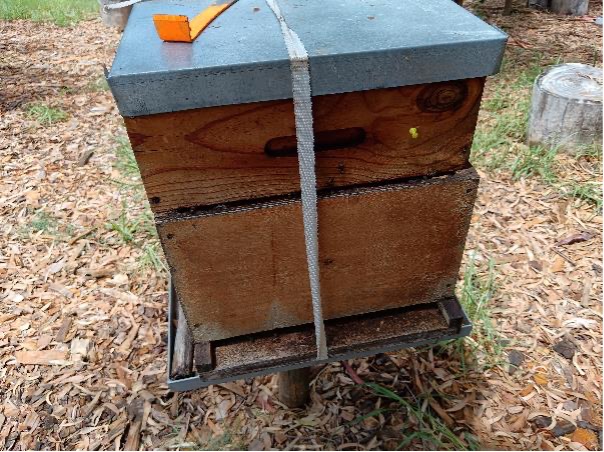

Field bees waiting for the sun after an unexpected rain shower.
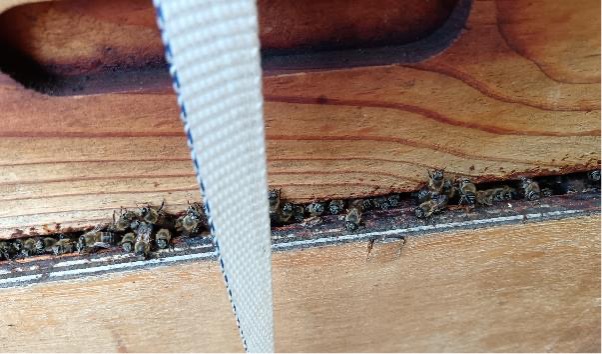
The six frames in the super are almost capped. Darker cappings indicate the age of the frames. Reusing frames is sustainable and does not alter the quality of the honey.
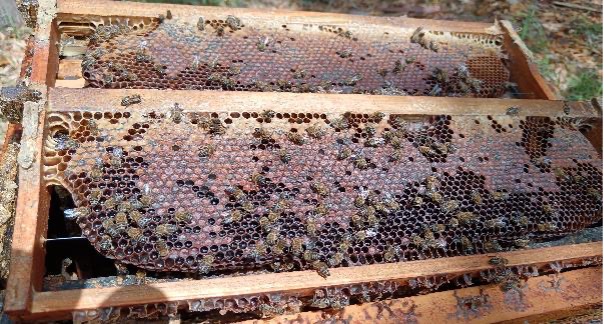
The super gets a green pin due to having 6 frames of honey which can still be harvested this season
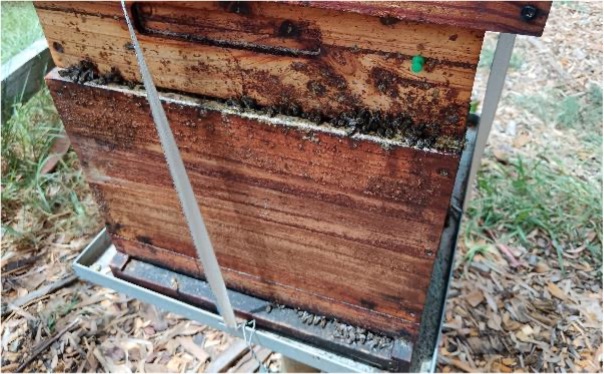
It is wonderful to see the bees making progress in the supers where all the honey has been harvested. The following photos show the bees building on the wax foundation sheets.

The glow of honey is visible, which shows how hard the bees have been working.

The blue pin indicates that I don’t need to inspect the super regularly as it will take time to build the rest of the comb and fill it with honey. However, the frames will be reused after winter if I remove the super for the duration of the colder months. The frames will have their comb intact and ready to be used in spring. Placing the frames in the freezer for two days will ensure the wax moths’ eggs and larvae are dead.
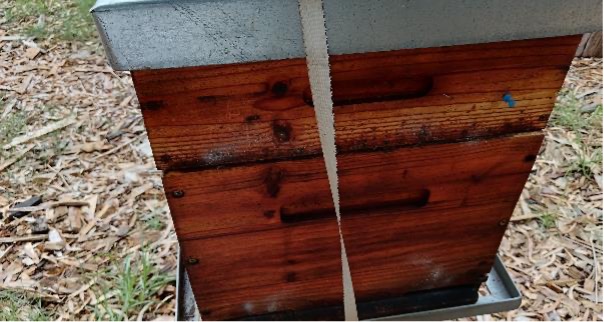
One hive’s super is fully capped and will be harvested after next week’s workshop. The red pin indicates that the entire super is ready to be harvested.

I gave the bees some used honey frames from Babel to clean. They did it but there is still some honey left. The German wasp, Vespula germanica, seems to enjoy the extra honey. Normally they eat the honey for an energy boost to go and butcher bees.
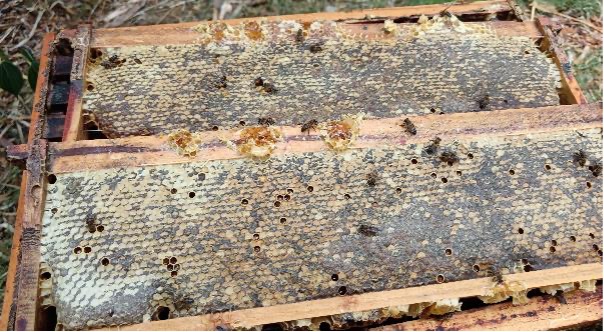
I saw the same thing after leaving the inner lid on the ground. The wasp only ate honey and did not ambush any of the bees.
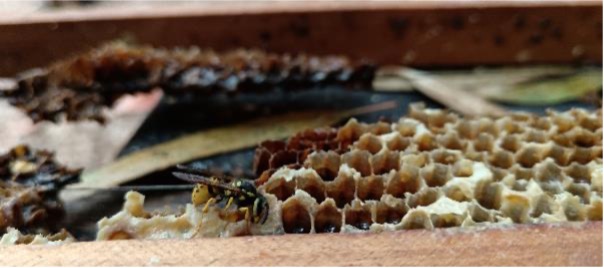
I removed more nests of the European paperwasp, Polistes dominula. One nest was in the wheel of a stationary tractor.
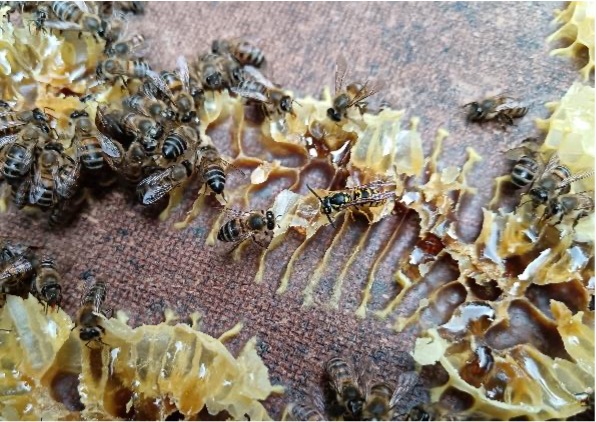
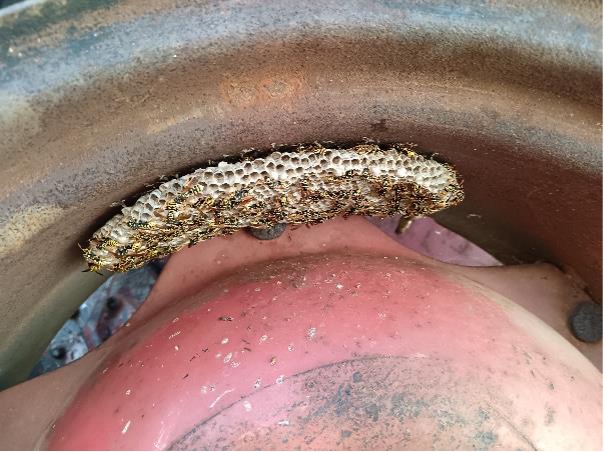
BEE JARGON
Super – Any hive body, usually a smaller box, used for the storage of honey which the beekeeper intends to harvest. Normally it is placed above the brood chamber(s). Supers are typically medium or shallow-sized boxes.
Apiary – Colonies, hives, and other equipment assembled in one location for beekeeping operations.
Beehive – An artificial cavity for a bee colony to live in, usually a box or boxes with movable frames.
Brood – Immature bees that are still inside their cells. Brood can be in the form of eggs, larvae, or pupae of different ages.
Capped honey – When bees cover their honey with wax, much like putting a lid on it.
Queen – A female bee with a fully developed reproductive system. Larger and longer than a worker bee.